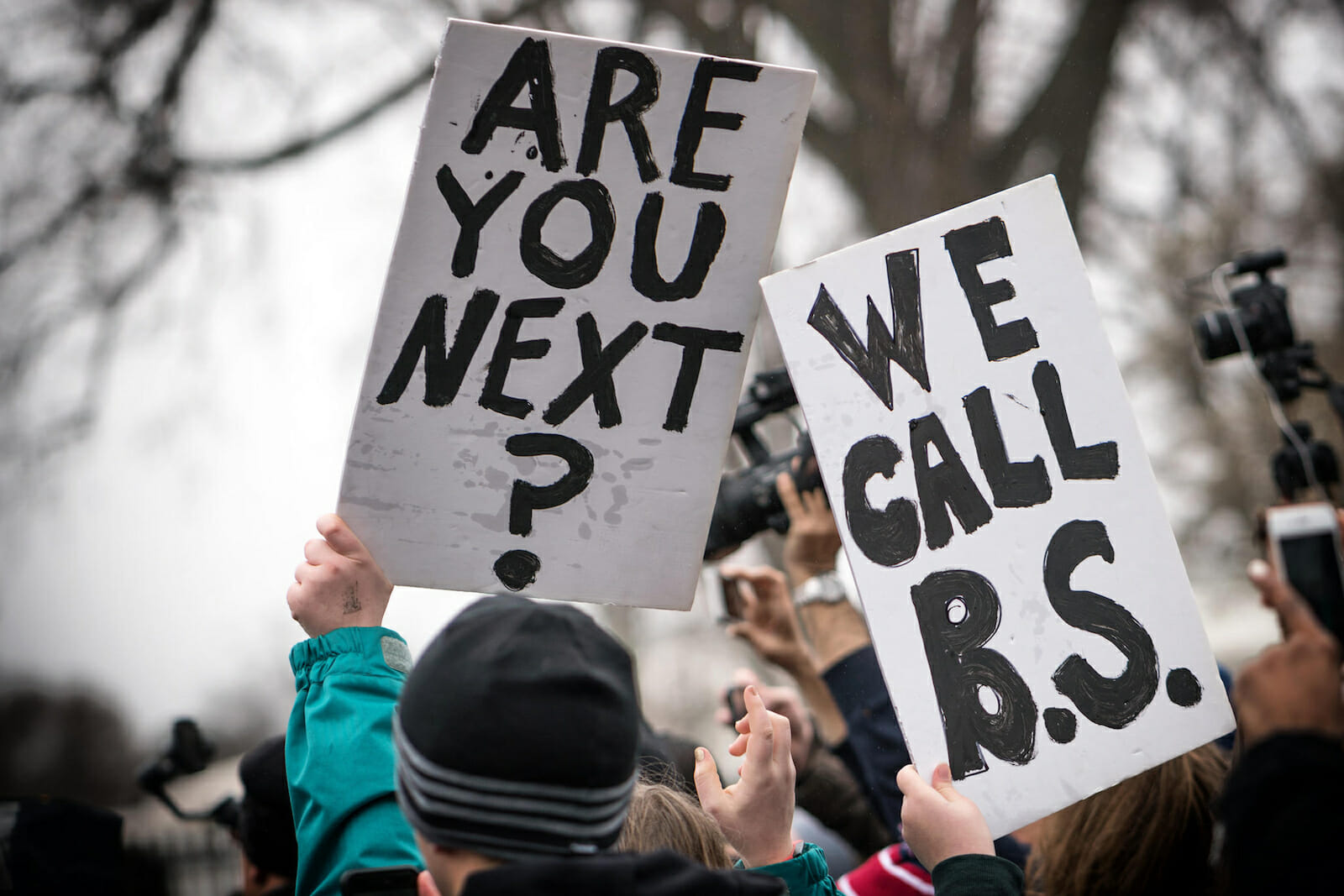
The Left and Guns: How I Learned to Stop Worrying and Love the Second Amendment
Like it or not the Second Amendment exists and the Supreme Court has ruled that its language guarantees an individual right to bear arms. Like it or not, the best estimates are that 42% of US households have guns, and there are perhaps 300 million plus guns privately owned in the country. Like it or not, guns are not going away and even if the Supreme Court were to reverse itself and declare there is no individual right to bear arms, all the existing guns are not going away. Like it or not, banning guns in a mass way will produce a firearms bootleg problem that will make alcohol smuggling during Prohibition look like child’s play. Like it or not, for much of the country, guns are rooted in the political culture of the United States–it’s God, guns, and the Constitution.
The Left is in denial about the Second Amendment, wanting to ignore that it exists. This has left it to conservatives–including crazy Right-wing extremists and the NRA–to take possession of the Second Amendment, declaring it protects the right to practically anything, including arming citizens to wage war against the government and possessing weapons of near mass destruction. What the Left needs to do is to take possession of the Second Amendment, articulating a progressive vision of what the right to bear arms really should mean in a civilized society. To paraphrase the subtitle of the 1964 Stanley Kubrick film Dr. Strangelove, the mantra needs to be “How I Learned to Stop Worrying and Love the Second Amendment.”
So what would a Progressive reading of the Second Amendment look like? For many on the Left, it means no guns at all. Again, this is impractical–the Supreme Court has already spoken. One needs instead to work within the confines of the constitutional debate it set. The language of the Second Amendment is cryptic. Among the questions surrounding interpretations of it are whether the Amendment protects an individual right to bear arms and what type of restrictions, if any does it permit. Unfortunately, the US Supreme Court’s legal history regarding the Second Amendment is thin, with less than a half-dozen opinions on it. Prior to 2008 in three separate decisions, the Supreme Court largely rejected or ignored claims that the Second Amendment protected an individual right and that the government–at all levels–was powerless to regulate guns.
But in 2008 in District of Columbia, v. Heller 554 U.S. 570 (2008), the Supreme Court ruled that the Second Amendment did protect an individual right to bear arms. Drawing upon dubious historical evidence of the constitutional framers and a close reading of the sentence structure of the amendment, the Court concluded that: “There seems to us no doubt, on the basis of both text and history, that the Second Amendment conferred an individual right to keep and bear arms.” But in reaching that conclusion the Court made two important qualifications.
First, the Court said that the right to bear arms is grounded in the right of confrontation or self-defense. We have a personal right to bear arms to protect our personal security. The law that was challenged in Heller encroached upon that personal right of guns for that purpose. The Left has to acknowledge that core meaning, which of course has traditional common law roots in self-defense. Yet acknowledging this right to self-defense, using it as a wedge in political debate, and as an argument for how many other justifications for various guns and related items are not protected by this core right of confrontation and personal security.
For example, at no point did the Court assert–as some claim–that we have a right to bear arms to take up defense or fight against the United States government. Waging war against the United States, as the Constitution declares, is treason, or at least a serious crime. The entire idea of a right of revolution against the government is located not in the Constitution but the Declaration of Independence. This right to armed revolution against the government is a concept found in British political theory and the struggle against a tyrannical king. Thomas Jefferson and others invoked this language as then British subjects against King George III in England, but the Declaration of Independence really has no constitutional or legal significance. The Constitution provides for the ballot box and not bullets as a means to resolve political grievances.
Second, the Supreme Court in Heller was clear that the Second Amendment was not absolute. It pointed out that “the right was not unlimited, just as the First Amendment’s right of free speech was not.” The First Amendment imposes, for example, time, manner, and place restrictions on speech, and certain types of expression, such as child pornography or extortion are forms of speech devoid of any constitutional protection.
Heller declared that they did “not read the Second Amendment to protect the right of citizens to carry arms for any sort of confrontation.” While the Court refused to enumerate what types of restrictions it would permit, it did say that among others, laws restricting the “possession of firearms by felons and the mentally ill, or laws forbidding the carrying of firearms in sensitive places such as schools and government buildings, or laws imposing conditions and qualifications on the commercial sale of arms,” would be permitted. Subsequent to Heller, lower courts have upheld many other restrictions on guns. In short, the Second Amendment is about personal self-defense, and that does not include the right to own automatic or semi-automatic weapons, or many of the other arms of choice used in mass killings.
The point is that the Second Amendment is no barrier to the types of public safety, common sense restrictions on guns that large majorities of the population support. Reasonable efforts to regulate gun violence are permitted. This is the place where the Left should embrace the Second Amendment. It needs to acknowledge a legitimate personal right to security and safety, offering then measures to enhance it (thereby making guns less necessary for that purpose) while also defining the right to bear arms as narrowly promoting such a right. Such a position is not going to eliminate all guns from the United States, and it is not going to solve all violence related to them. Yet a Progressive embrace of the Second Amendment will do a better job advancing the debate and policy on guns than the current situation which has regulated to the Right possession of this Amendment.

